Good nutrition is one of the most important health investments that you can make. Not providing your horse with the nutritious meals they need today can have far-reaching consequences on their success of tomorrow. However, when feeling a little stretched financially, there are several ways you can make minor management adjustments based on your horse’s current needs. A program that is both economical and provides suitable nutrition can be accomplished so your horse can remain happy and healthy by selecting feeds that are appropriate for their individual needs.
Take care of your forage
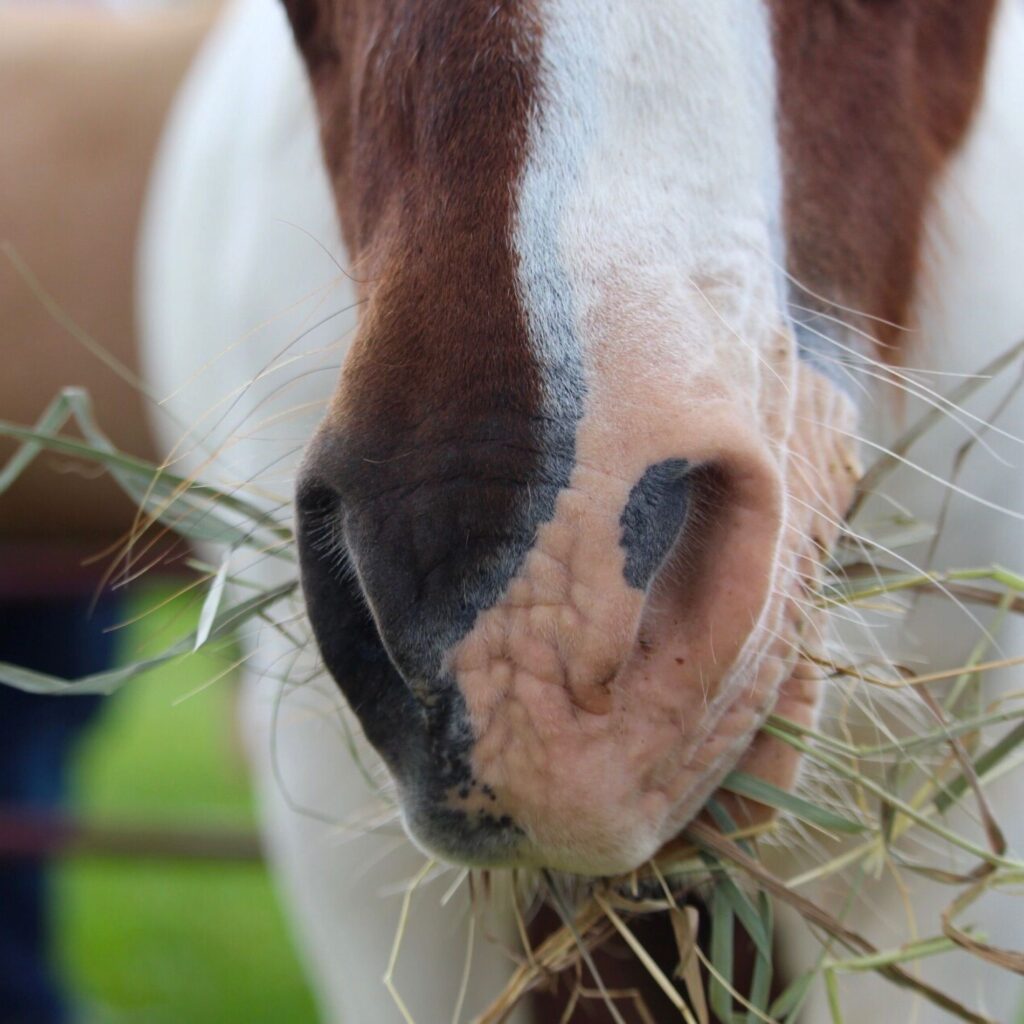
We can’t say it enough – the most important part of your horse’s entire diet is the nutrition they receive from their hay and pastures.
Horses evolved as grazers able to pick their way through a large distance across upwards of 18 hours per day. The outward appearance of horses may have changed dramatically over time, but the function of the gut has changed little. The domesticated horse needs a diet that is based primarily in good quality long-stem fibre and those green open pastures of the Canadian summer. Good quality hay has excellent nutrient value, therefore investing in hay can go a long way to provide nutrition that your horse depends on.
A good alfalfa mix provides both fibrous stalks for digestive health, as well as acceptable levels of proteins and nutrients. If you cut your own hay or receive it from a continuous supplier, consider getting it tested to determine what the average nutrient levels are to assist in determining what hay is required for your group of horses. If you have a hay that is high in nutrients, you may not need to round out their ration with a feed that is very nutrient dense and often more costly and can instead use a quality entry level feed.
Making sure that you get the most out of your forage and pastures is one of the most effective ways to utilize the food supply your horse receives. If you find that you have horses that step on and waste round bales, or they spoil due to the elements or storage, smaller square bales can be a solution to penny pinch. Although seemingly more expensive at the forefront, smaller bales give owners the ability to control intake and location of feeding which may help reduce the amount that is wasted.
The same can be said for pasture management. It’s crucial to make sure grass stems are mature before letting horses out to graze – overgrazing on short pastures can damage the root system and future growth. Temporary fencing or dry lots to put horses in during rainy weather can control exposure to grazing and hoof damage to the soil. Rotational grazing may seem to be a tedious exercise with multiple horses and pastures, but proper pasture management means long term savings when horses can make the most use out of their natural environment during the summer months.
Calorie management
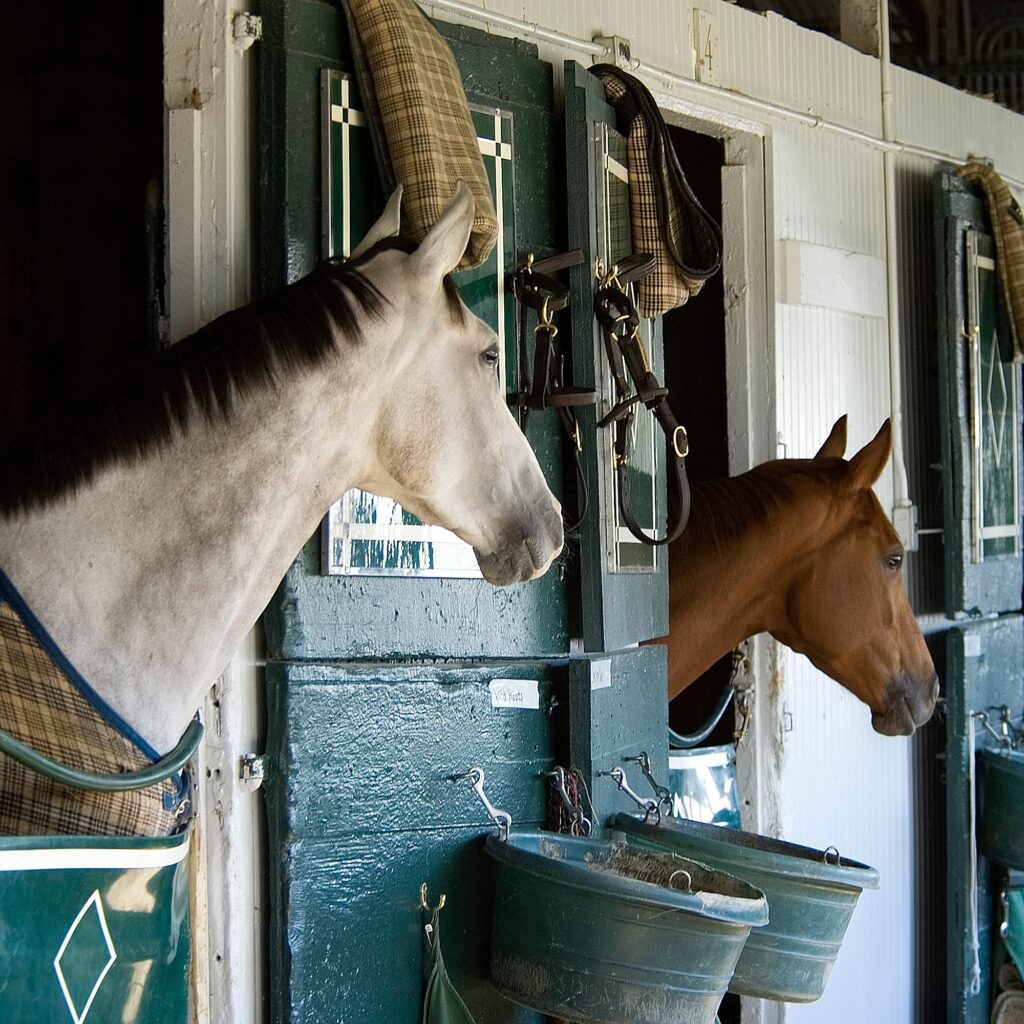
Determining your horses’ calorie needs is important in selecting a suitable feed. Often we err on the side of feeding higher nutrients than required. A racehorse in training has significantly higher calorie requirements than a school pony doing hour long lessons with kids during the week. Assessing the body condition, activity level and general needs of your horses can find you feeding more energy in the diet than required for your lower level performance horses. Moving to a recreational type feed is generally more economical and can be a cost-savings move for appropriate horses while still providing quality nutrition.
The performance horse demands an increase in energy in order to exercise, avoid burn out, and help with the recovery and repair of tissues. Save those calorie dense feeds for those who really need it year round – hard keepers, broodmares and foals and travelling sport horses – while saving some money on easier keepers or athletes on a less demanding schedule.
Keep in mind that this tactic is not to reduce the nutritional quality, as most recreational complete feeds are fortified with good levels of equine nutrition. This approach allows you to re-allocate some funds, by feeding slightly more economical feeds with less added starch/energy, or feeding ration balancers in reduced feed rates for the same nutritional impact. Masterfeeds representatives can assist you to find the best options for cost savings, while still maintaining good nutrition for optimal health and performance.
Hay Extenders & Supplements
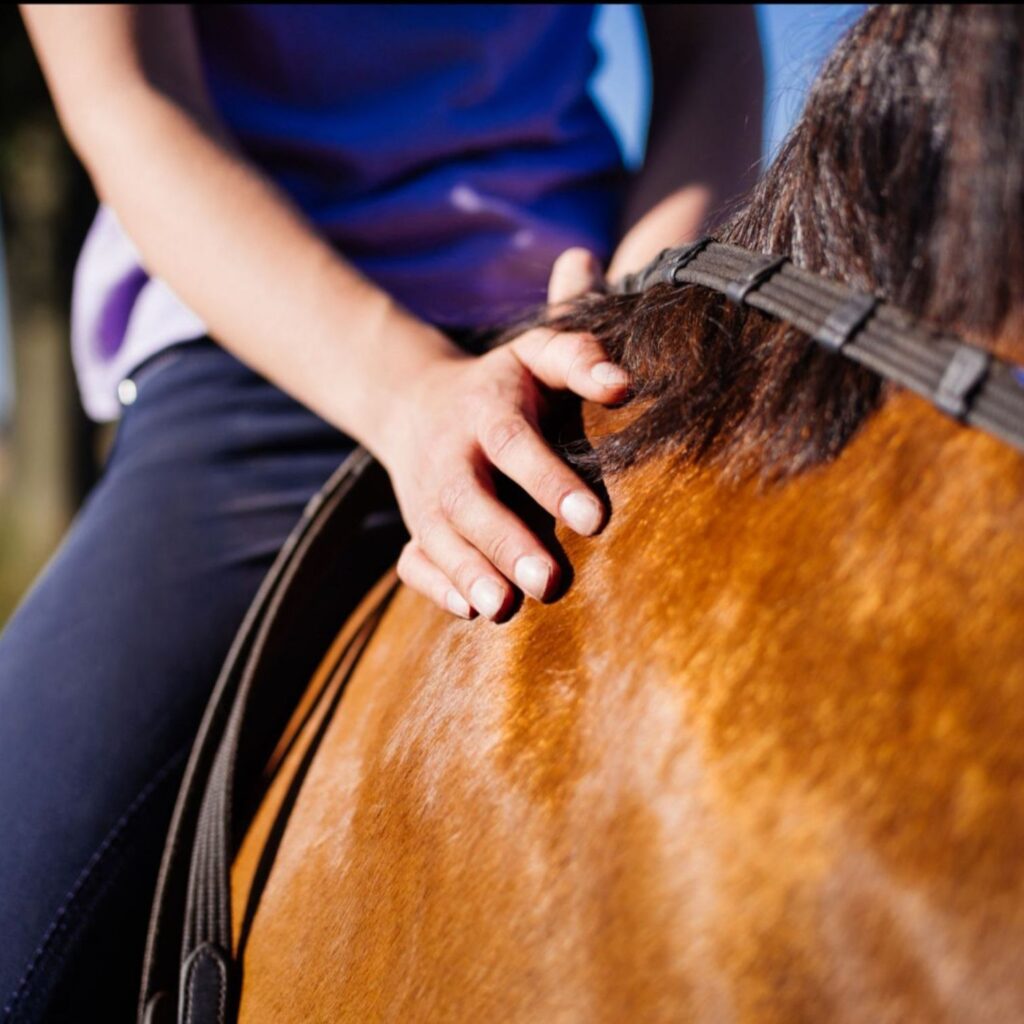
While you’re looking at your feed program for efficiency, now is a good time to look at your stock of additional supplements that you use on all or specific horses. Are you noticing a difference with your horse on them? Are they required? Keep in mind that most well-rounded complete feeds or ration balancers, along with your forage contain everything your horse needs, besides special cases or veterinary instruction. Continued improvements in horse feeds such as the inclusion of organic trace minerals and probiotic packs means you can be confident in the well-rounded nutrition your horse is receiving day by day.
Hay extenders, although not intended to be a replacement to long stem fibre, are a good way to stretch out your current supply of hay. These are highly digestible fibre sources, low starch, generally economical in price and many provide additional nutrients expected to be found in forage. Beet pulp and grains (such as oats) may also be a lower cost option in some areas of Canada to be fed alone or cut with a completed feed. Feeding a grain or beet pulp may have traditionally been frowned upon, but there is true quality in those products. They can provide good fibre and energy. Adding a ration balancer or mineral completes the diet for a low energy requirement horse.
Good nutrition is a long-term health investment where corners cannot be cut. There is, however, always the ability to be diligent, save where necessary, and to maximize the efficiency of what you feed. A good maintenance diet can have you saving money, but also have your horse prepared to work. Check out our full line up of feeds, and our featured Masterfeeds Co-Care products for efficient feeding.
For more information or to schedule an on-farm call or hay analysis from one of our reps, visit our website, contact us, or email us directly at: happyhorses@masterfeeds.com
Product Spotlight
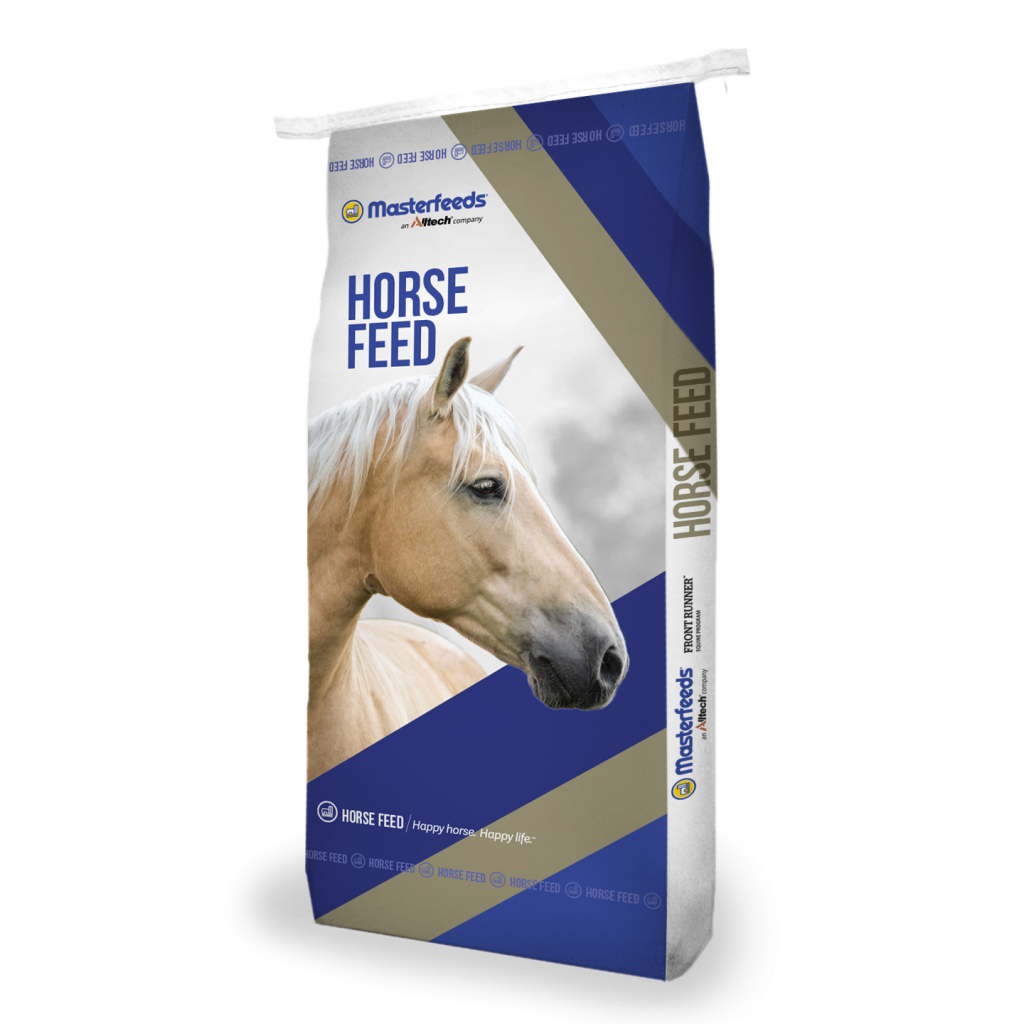
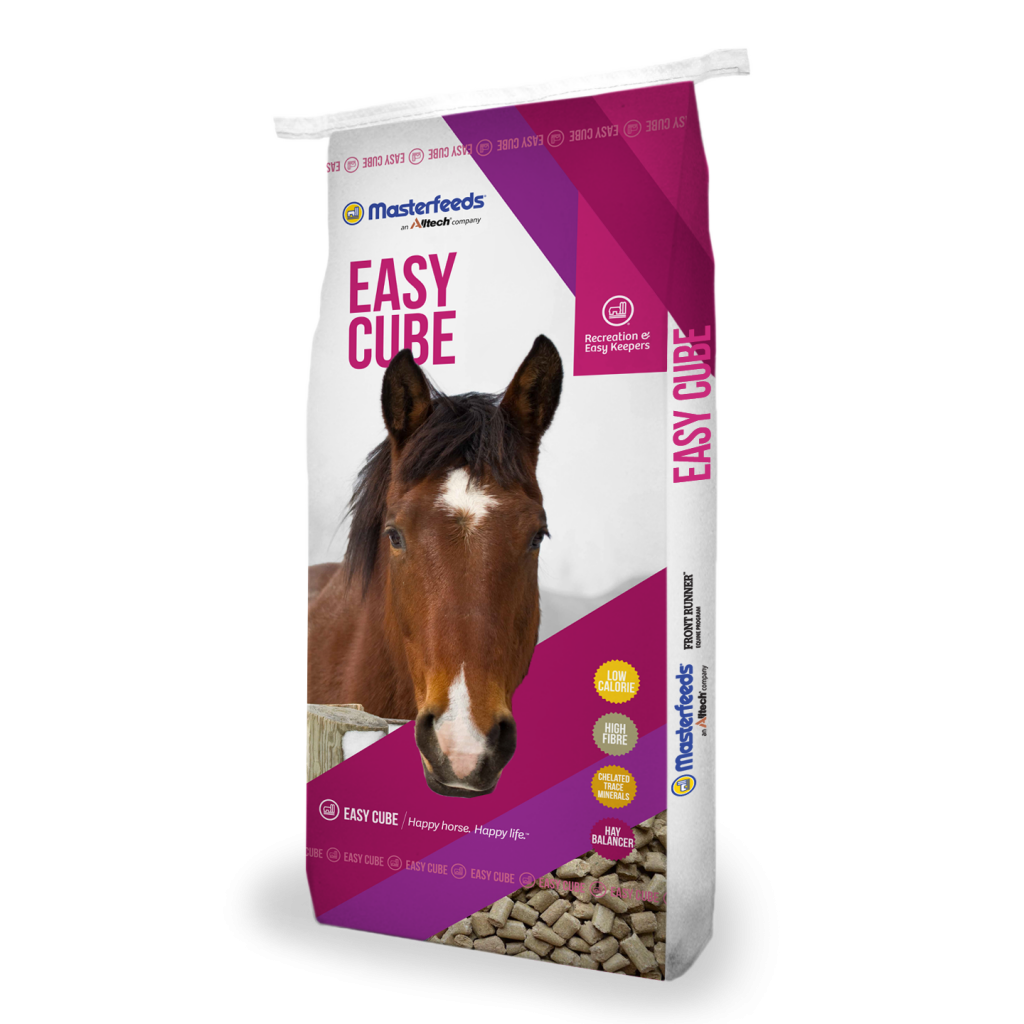
EASY CUBE (CUBE) EAST
FOR EASY KEEPERS AND EXTRA NUTRIENTS
A 12% protein vitamin and mineral supplement designed to be fed with hay for horses who need little to no grain to maintain weight. Easy Cube can be fed alone or as a vitamin and mineral topdress in addition to other feeds.
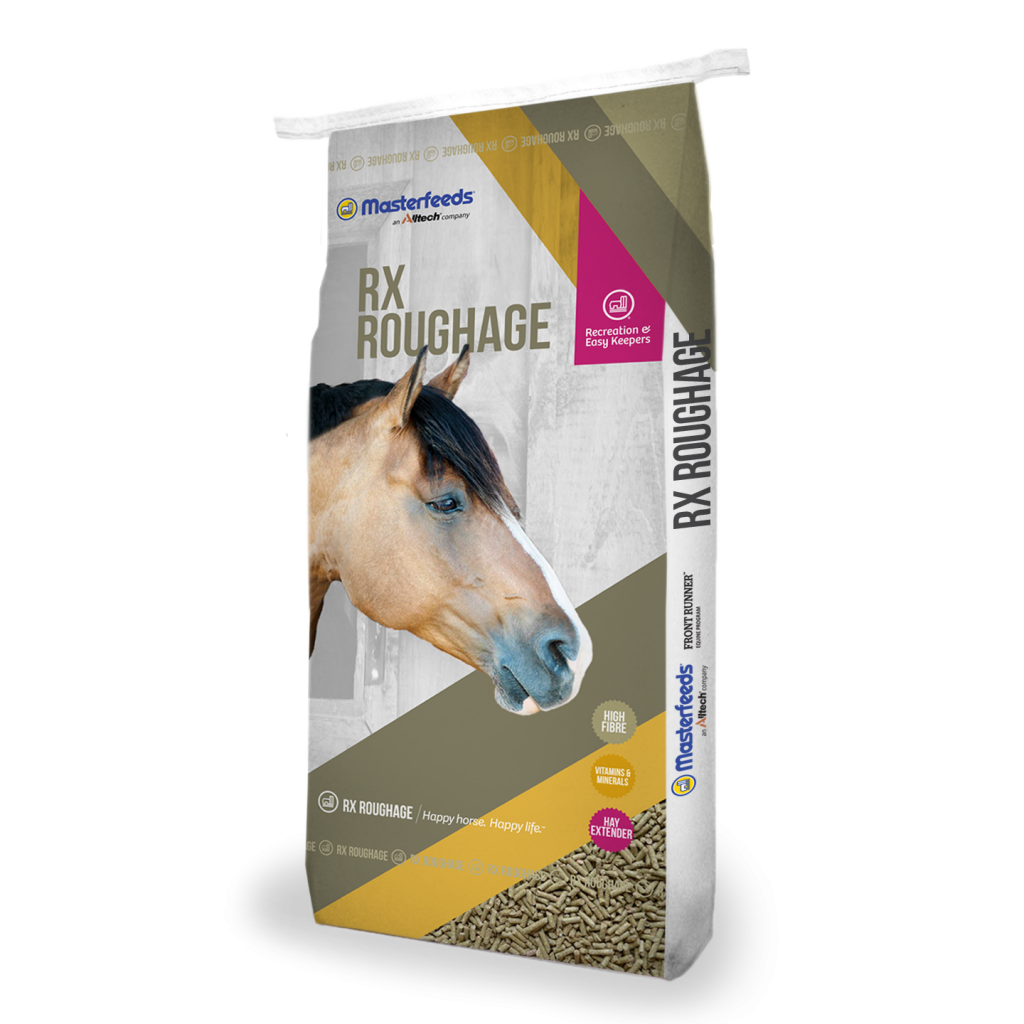

Product Spotlight
- Winter Nutrition Tips
- Feeding the Mare and Foal
- Breaking Down Nutrition
- Spring Nutrition Tips
- Feeding for Performance
- All About Hay
- Feeding the Senior Horse
- Fall Nutrition Tips
- Feeding Supplements
- The Beginner’s Guide to the Equine Digestive System
- Macronutrients: The “Big Three” of the Equine Diet
- Feeding the Racehorse
- Feeding the OTTB
- Feeding the Active Senior
